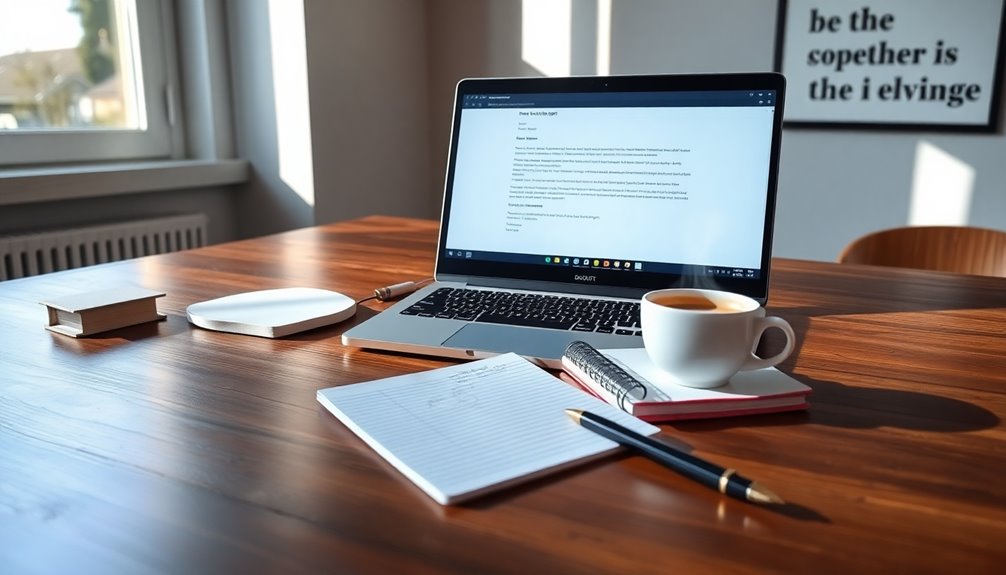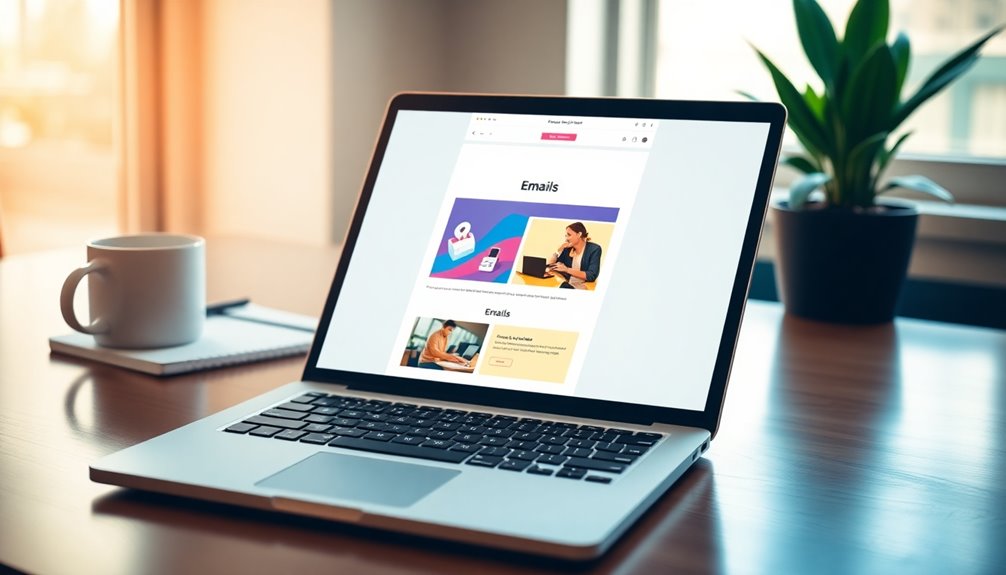To grab a coach's attention with your volleyball recruiting email, start with a strong, personalized subject line that includes your name, graduation year, and position. In the opening, state your key achievements and include links to your highlight reel. Show genuine interest in their program by mentioning recent successes of their team. Keep your email concise and error-free, and end by inviting the coach to watch an upcoming game. Remember, the more you personalize each email, the greater your chances of receiving a response. There's more to uncover about creating that perfect email!
Key Takeaways
- Start with a personalized opening that reflects genuine interest in the volleyball program and recent achievements.
- Clearly state your graduation year, position, and notable accomplishments, including links to highlight reels and profiles.
- Mention recent team successes or player stories to demonstrate familiarity with the program and its culture.
- Maintain a professional tone throughout, ensuring your email is concise, free of errors, and well-structured for readability.
- Conclude by inviting the coach to an upcoming game or tournament to showcase your skills live.
Introduction

How can you make your introductory email stand out to college coaches? Start with a personalized email that shows your genuine interest in their volleyball program.
Use an email template that allows you to include vital athletic and academic information. Mention your name, graduation year, and position right at the beginning to grab their attention. Highlight your notable achievements, such as awards or stats, to give the coach a reason to remember you.
Don't forget to reference any connections you might've with current athletes or alumni from the program. This creates a relatable context and shows that you've done your homework.
Additionally, mention specific aspects of the program or university that attract you; whether it's the coaching style, team culture, or academic offerings, demonstrating your research can set you apart.
A well-crafted introduction not only sets the tone for your email but also increases your chances of receiving a response from the college coach.
Personal Connection Builds Trust
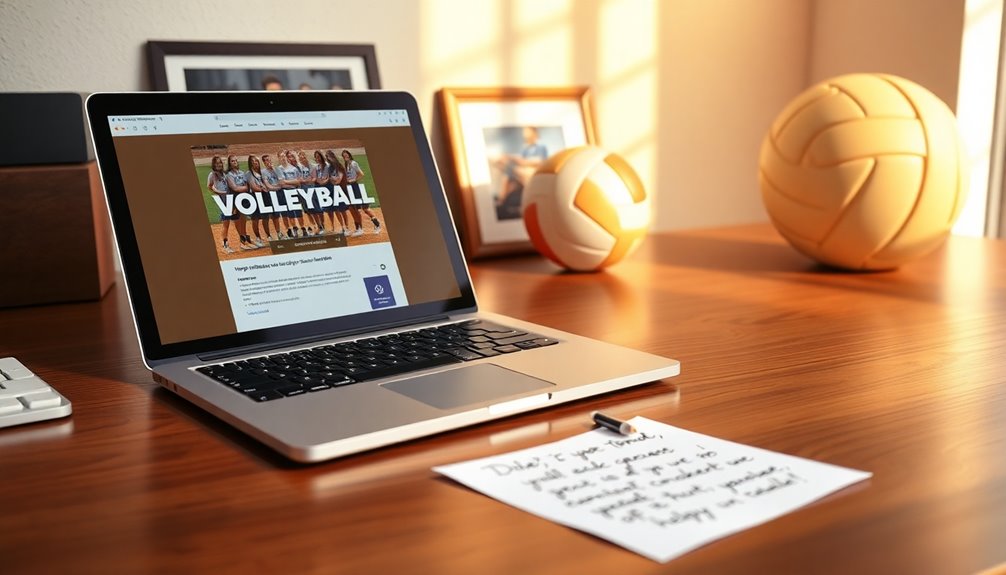
Building a personal connection can significantly enhance your chances of making a lasting impression on college coaches. When you personalize your emails by mentioning the coach's recent team achievements or specific player success stories, it shows you've done your homework and are genuinely interested. Coaches know that a thoughtful approach reflects your commitment to their program.
Incorporating shared experiences, like attending the same camps or tournaments, creates common ground and helps foster rapport. Highlighting mutual acquaintances, such as current players or coaches, adds credibility to your outreach and cultivates trust. Coaches appreciate knowing that you come recommended or are connected to someone they respect.
Additionally, expressing familiarity with the program's culture and values demonstrates that you're not just looking for any team; you want to be part of theirs. A friendly yet professional tone in your emails establishes a positive first impression and encourages ongoing communication.
Personalized Subject Line

Creating a personalized subject line can significantly boost your email's visibility and impact. When you send an email to a college, make sure to include your name, graduation year, position, and a standout achievement. For example, "Sophia Smith, 2026 Outside Hitter, Gold Medalist at Junior Nationals" immediately tells coaches who you're and what sets you apart.
Keep your subject line concise while emphasizing your unique selling points. If you've got specific stats, like your GPA or notable awards, include them to make your recruiting email more compelling. Think along the lines of "Jake Swift, 2027 QB, 4.3s 40-Yard Dash, 3.8 GPA" to grab attention.
Avoid generic subject lines—personalization increases the likelihood that your email will be opened and read by the coach. You might even experiment with incorporating urgency or relevance, such as mentioning an upcoming tournament, to encourage timely responses.
Crafting Your Introductory Email
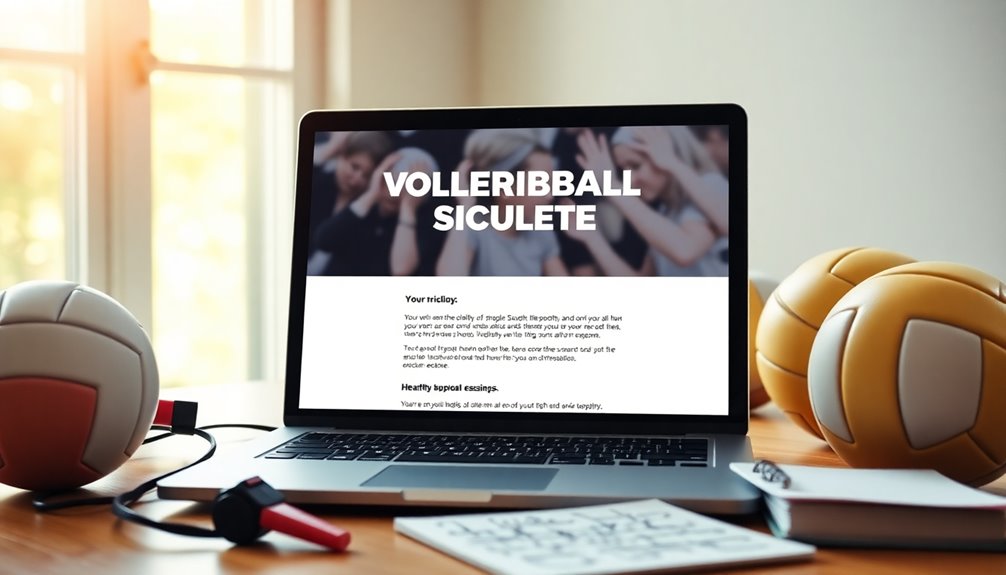
An effective introductory email starts with a strong opening that immediately captures the coach's attention. Begin with a clear subject line that includes your name, graduation year, position, and standout stats. This sets the stage for a compelling message.
In the opening paragraph, introduce yourself, mentioning your high school and current club team. Share your excitement about their program and any personal connection you have to it.
Next, highlight your key athletic accomplishments, such as awards, statistics, and notable performances. Include links to your highlight videos for easy access to your skills on the court.
Don't forget to mention your academic achievements, like your GPA and test scores. This demonstrates your commitment to both athletics and academics, which is crucial in the college recruiting process.
Conclude your email by inviting the coach to watch an upcoming game or tournament. Provide your availability for further discussions, making it easy for them to reach out. This encourages ongoing communication and shows that you're proactive in your recruiting efforts.
Pro Tips for Maximizing Impact
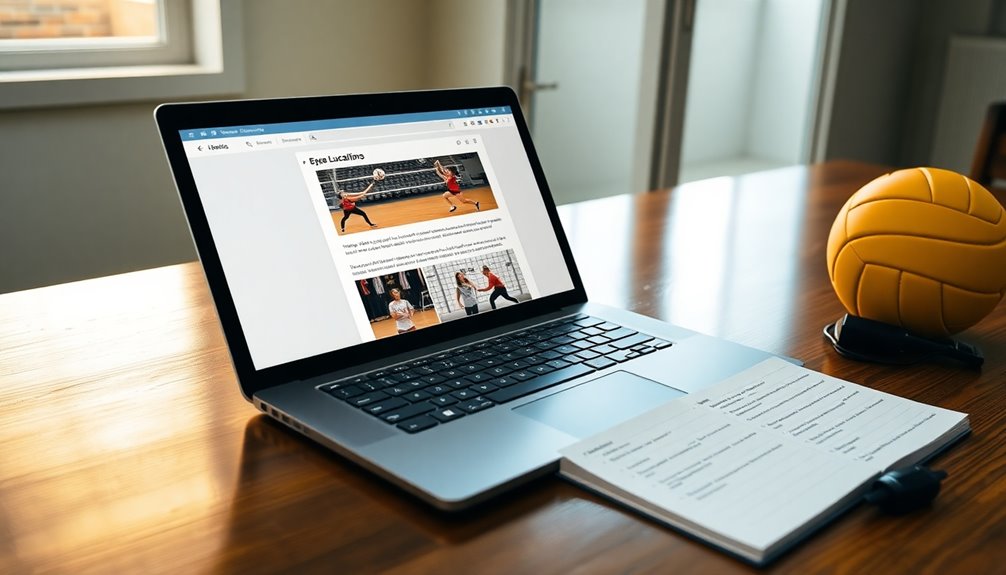
Maximizing the impact of your recruiting email is essential for catching a coach's eye. Start with a concise subject line that includes your name, graduation year, position, and key stats. This helps your email stand out among the many coaches receive daily.
Personalize each email by referencing specific achievements of the coach's program or recent successes. This shows genuine interest and research, making your message more engaging.
Include a link to your recruiting profile and attach highlight videos showcasing your best performances. Visual evidence can significantly enhance your appeal as a recruit, allowing coaches to see your skills in action.
Throughout your email, maintain a professional tone while expressing enthusiasm for the program. Striking this balance helps establish rapport with coaches and makes a lasting impression.
Common Mistakes to Avoid

Even with the right approach, mistakes can undermine your recruiting efforts. One common error is using an unprofessional email address. Stick to a simple format with your name; it helps maintain your credibility.
When you're emailing college coaches, don't send generic emails. Personalizing each message to the specific coach and program shows that you're genuinely interested and increases your chances of a response.
Avoid writing overly long emails. Keep your message concise and focused on key achievements and stats that matter to the coach. Spelling and grammar errors can also derail your professionalism, so proofread your email carefully.
Another mistake is neglecting a clear call to action. Include something like, "I'd love to hear your thoughts," or "Feel free to contact me if you have any questions." This encourages engagement and shows that you're proactive.
Using effective email templates can help you avoid these pitfalls, but remember to customize them. By steering clear of these common mistakes, you can enhance your chances of making a good fit with the college program you're targeting.
Recruiting Email Template Example
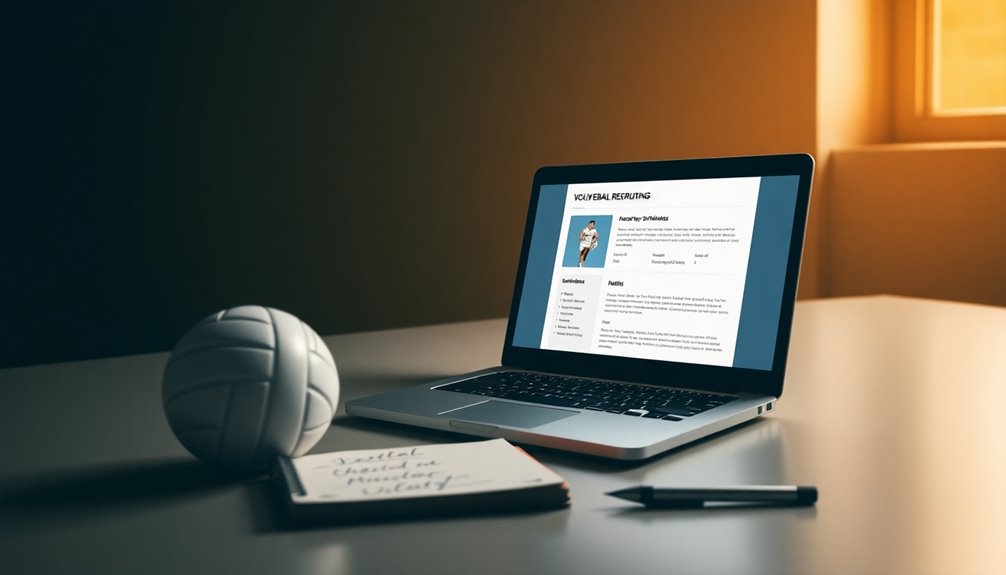
Creating an effective recruiting email can significantly impact your chances of connecting with college coaches. Here's a sample template to guide you.
Subject Line: Sophia Smith, 2025 Outside Hitter, 4.7 GPA, Gold Medal at Junior Nationals
Dear Coach [Last Name],
My name is Sophia Smith, a 2025 graduate from [Your High School] and a member of [Your Club Team]. Last season, I averaged 5 kills per match and contributed to my team's success at the national level.
I'm particularly drawn to [College Name] because of its strong [specific program] and its commitment to athlete development. The positive campus culture aligns perfectly with my academic and athletic goals.
I invite you to view my highlight video at [link], where you can see my skills in action.
I also attached my free recruiting profile that includes my stats and upcoming competition schedule.
I look forward to hearing from you soon! You can reach me at [Your Email] or [Your Phone Number].
Thank you for your time!
Best regards,
Sophia Smith
Final Thoughts
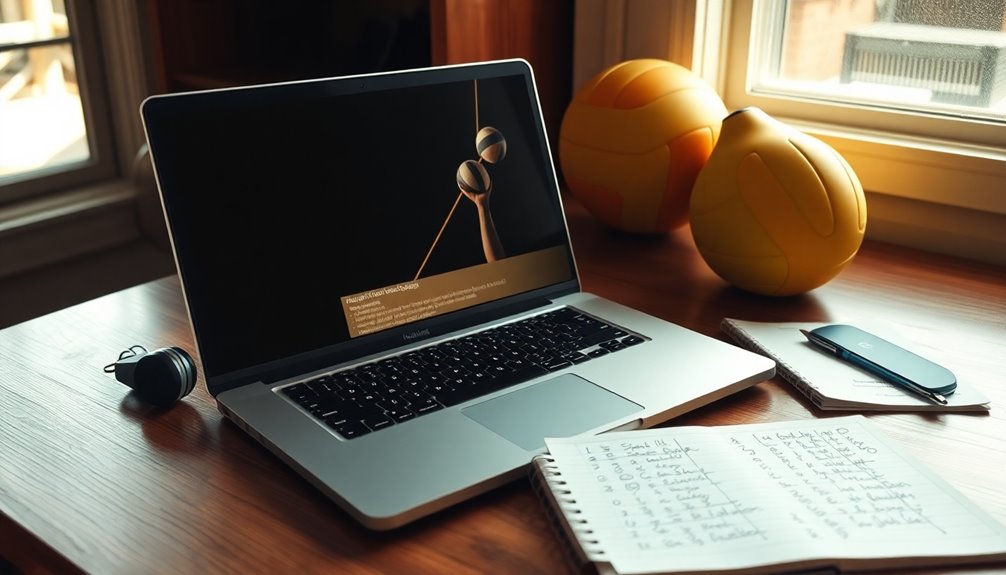
When reaching out to college coaches, your approach can set the tone for your recruiting journey. Personalizing your email is crucial; it shows that you've done your homework on their team and highlights your genuine interest in their program. Mention specific attributes of their program or recent achievements that resonate with you.
Include your athletic stats and academic achievements, such as your GPA and test scores, to make your email stand out. Providing links to your highlight reel or athletic profiles will help coaches assess your skills and fit for their program more effectively.
Don't forget the importance of follow-up. Waiting 1-2 weeks after your initial email to check back in demonstrates your commitment and keeps you on the coach's radar.
Make sure your email is concise, professional, and free of errors. This reflects your seriousness about the recruiting process and showcases your work ethic.
Remember, coaches are looking for athletes who not only excel on the court but also present themselves well off it. Your Grad Year is important too, so make it clear in your communication.
Good luck!
Frequently Asked Questions
How to Get College Coaches to Respond to Your Emails?
To get college coaches to respond to your emails, personalize each message, highlight your achievements, and include a clear call to action. Follow up consistently, maintaining professionalism and clarity throughout your communication.
How Long Does It Take for a Coach to Respond to an Email?
Coaches usually respond to emails within 1-2 weeks, but it varies by season and individual commitments. If you don't hear back, consider following up after a week to express your continued interest.
How to Write a Recruiting Email?
To write a recruiting email, start with a strong subject line. Introduce yourself, highlight achievements, include links to videos, and end with a polite request for the coach to watch your upcoming games. Keep it concise!
What Coach Should You Email for Recruiting?
You should email the head coach or recruiting coordinator first, as they make recruitment decisions. Research the staff, and if it's relevant, contact position coaches too. Focus on schools that align with your goals.

